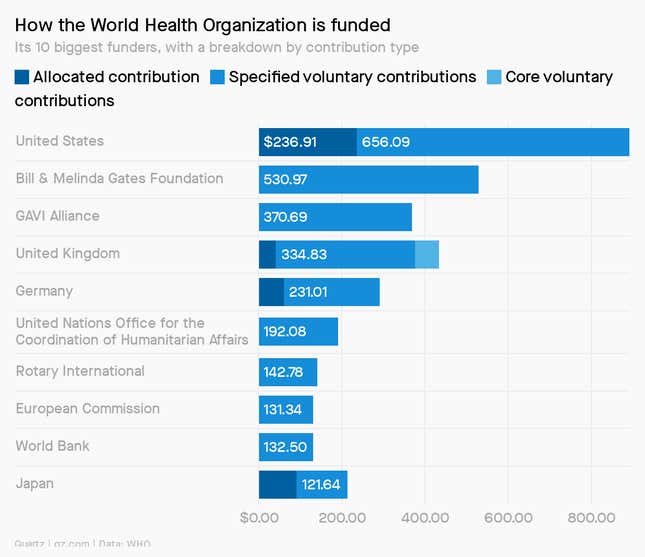Good morning, Quartz readers!
Here’s what you need to know
The world has another promising vaccine. Moderna said its experimental coronavirus vaccine had an efficacy rate of 94.5% in clinical trials. The announcement, coupled with Pfizer’s similar one last week, indicates April for vaccine distribution, though the World Health Organization warned it will take much longer for the entire world to be vaccinated. Meanwhile, India’s Biological E. began human trials of its potential vaccine.
The Olympics are happening in 2021, and fans are invited. International Olympic Committee president Thomas Bach and Japanese prime minister Yoshihide Suga reiterated a commitment to holding the Games in Tokyo next summer with spectators, on the assumption that international visitors will be vaccinated against coronavirus prior to arrival. Athletes will just need to test negative once they enter the country.
The first person charged under Hong Kong’s security law pleaded not guilty. Following a July 1 protest in which Tong Ying-kit was accused of riding his motorcycle into a group of police officers while carrying a banner with a banned protest slogan, he was charged with inciting secession and engaging in terrorism.
Didi Chuxing showed off its customized electric vans. Developed with EV maker BYD, the Chinese ride-hailing company’s D1 model includes features like a sliding passenger door, comfier driver seats, and extra legroom in the backseat. The first vans will hit the streets in December.
Asia’s biggest economies are roaring back. China reported its industrial output jumped 6.9% in October and retail sales increased 4.3%, while Japan’s GDP grew 5% in the third quarter, ending the country’s recession. At the same time, Thailand reported a 6.4% GDP contraction in Q3, although the drop was less than expected.
RCEP by the digits
On Sunday, more than a dozen Asian countries signed the world’s biggest trade deal. Here’s how the Regional Comprehensive Economic Partnership breaks down:
15: Countries the deal covers
2.2 billion: People who live in those countries
>$26 trillion: Combined GDP of the nations included in the RCEP
8: Years the deal was under negotiation
92%: Proportion of goods traded between participating countries that could see a reduction in tariffs
Charting WHO funding
Is the World Health Organization a membership organization or is it the world’s public health agency? By taking donations from nonprofits, more and more of WHO’s budget has been earmarked for specific purposes, leaving the organization with less for core operations and critical functions that aren’t as appealing to donors.

Then there are the nations who give. When member countries are misbehaving in ways that are bad for global health, should WHO push back on them as a global public health agency would, or work to appease those countries, acting more like a membership organization? Alexandra Ossola puts it under a microscope.
What’s cool?
Western consumers assess coolness on various categories, including aesthetic appeal, originality, high status, and more. But at cool’s core are a few essential features—an element of being positive or pleasing, and autonomy, or a willingness to deviate from the norm and choose one’s own path, despite what others think.
This autonomy has to follow some rules, though. It means differing from the norm—specifically a norm the perceiver considers illegitimate—in a way that isn’t too extreme, or it risks losing its positive spin. Today, that kind of cool arguably includes fighting against old structures and advocating for racial justice, gay rights, feminism, environmentalism, and other issues.
Read more in our field guide to the new meaning of cool.
We’re obsessed with subway maps
The underground design society. At a time when satellite-powered navigation apps on our phones can tell us exactly where to get on, transfer, and get off the subway, maps still play an important part. They’re not just functional guides—they become instant icons of a metropolis, akin to the weight of a seal or a flag. The diagram depicts a city’s breadth, vitality, and local character, at a glance. No wonder introducing a new subway map is often steeped in drama. Oh yeah, the Quartz Weekly Obsession is going there.
Calling all accidental therapists
The task of supporting team cohesion during times of turmoil has defaulted to managers, regardless of whether they’re trained to handle it. In this workshop, experts will share the steps and practical advice you need to best communicate with your employees during emotional times.
Register today for our free virtual workshop on Nov. 19 from 11am–12pm US Eastern time to learn how you can manage your team through emotional times.
Surprising discoveries
Avoiding crowds of tourists is supposed to be easier than ever. But not in New Zealand’s Chatham Islands, possibly the only place in the world experiencing over-tourism right now.
Hyundai SUV owners got a different kind of “new car smell.” Imitation leather headrest coverings made the car interiors reek of rotten produce.
This should keep you busy for a while. With 9,036 pieces, Lego’s Roman Colosseum set is its largest ever.
A Russian town dishonors the dead… Sand used to de-ice a Siberian road contained human bones.
… while a French radio station honored the not-yet dead. Radio France Internationale accidentally published the pre-written obituaries of Queen Elizabeth II, Brigitte Bardot, and Pele, among others.
Our best wishes for a productive day. Please send any news, comments, photos of empty tourism hotspots, and industrial strength car air fresheners to hi@qz.com. Get the most out of Quartz by downloading our iOS app and becoming a member. Today’s Daily Brief was brought to you by Alexandra Ossola, Jackie Bischof, Anne Quito, Liz Webber, and Susan Howson.